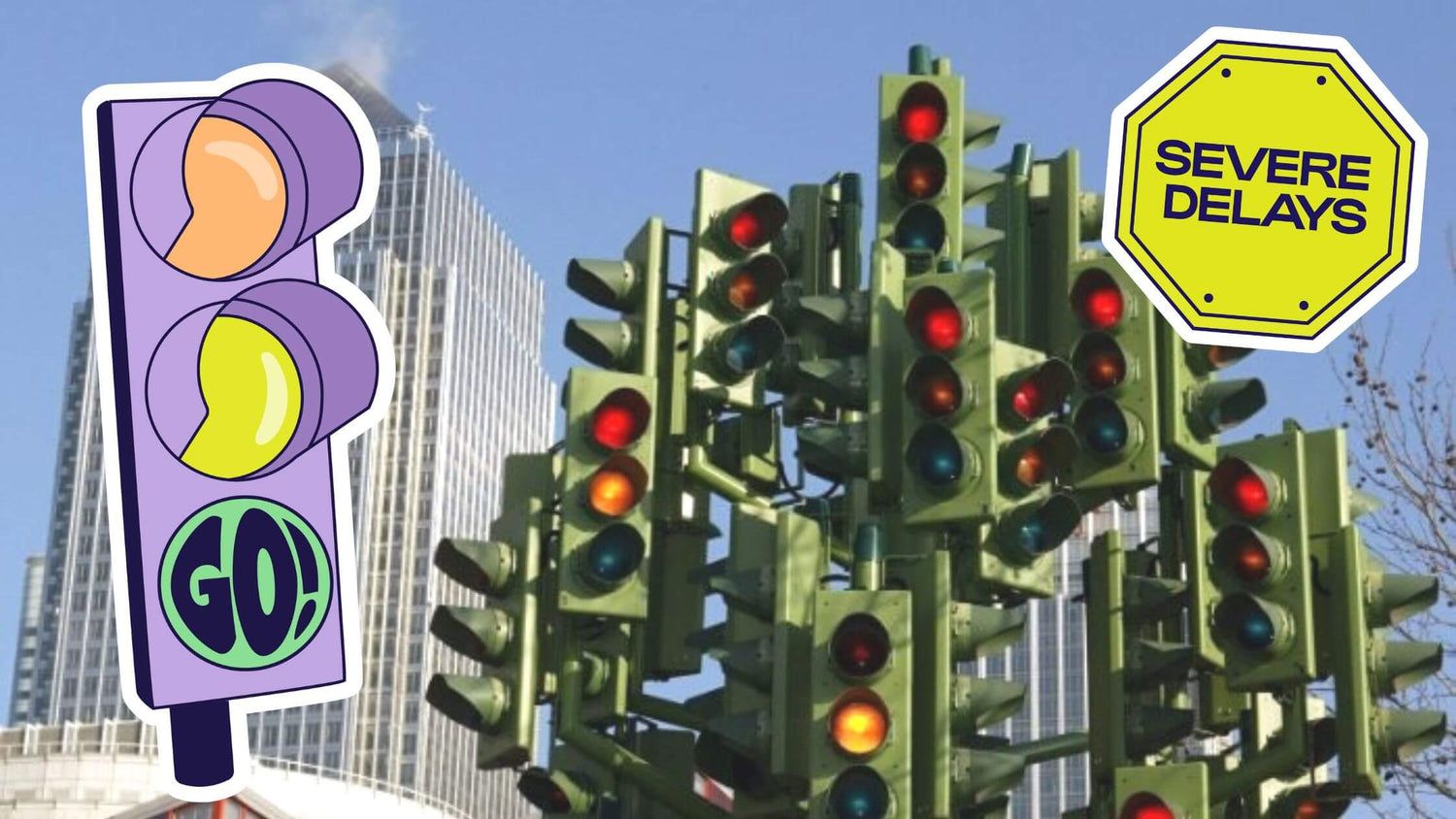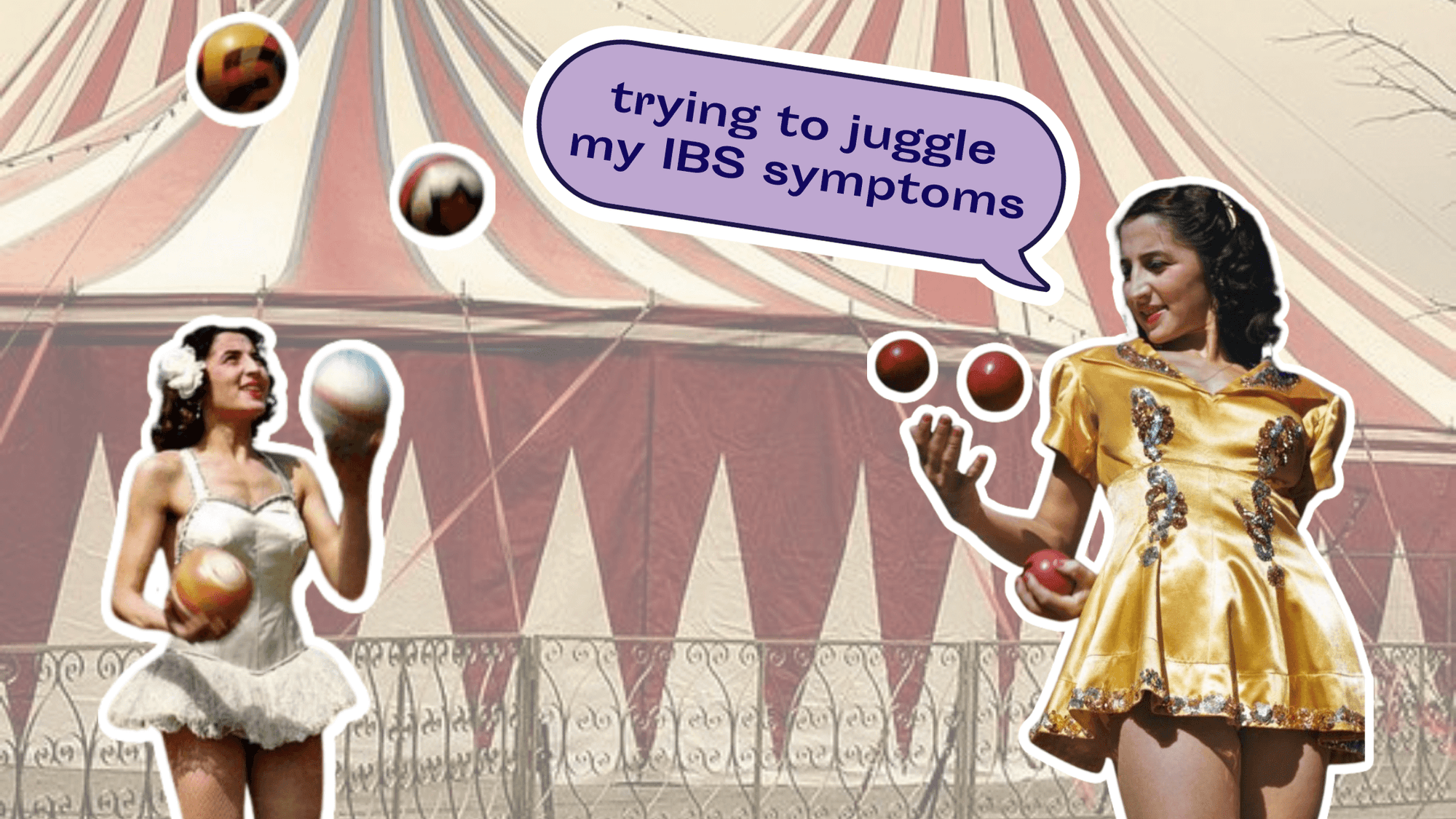Constipation is something we’ve all experienced at one point or another. It’s often a benign issue but can be extremely uncomfortable to deal with. In fact, it can be dangerous if you become chronically constipated and could start to lower your quality of life.
Some people are more prone to regular bloating and constipation than others. There are a few reasons for this, and we will discuss them later on in this article, as well as some lifestyle changes to stop bloating. First, let’s cover what constipation is.
What Is Constipation?
Constipation is a digestive problem that around 20% of the population experience regularly. However, most of you reading this will have been constipated at least once in your life (unless you’re very lucky!).
When you’re constipated, you’ll feel fullness, tightness, and discomfort in your abdomen. You might feel fuller more quickly than usual due to the hard stools in your bowels contributing to boosting and tightness near your stomach.
Most people go to the toilet once every day or on alternate days, although everybody’s ’normal’ is unique to them. You might only go three times a week, and if it’s always been this way, that’s totally fine, and that’s just your normal.
That being said, there is a set of criteria that define constipation. If you meet each of the points below, you’re constipated:
- You’ve been to the toilet to pass stool three or fewer times a week
- Pain or discomfort when passing stools
- Straining to pass stools
You might experience frequent abdominal bloating when you’re constipated, particularly before a bowel movement. Often, constipation can cause you to push hard and strain when you’re trying to go to the toilet. In some cases, all of this strenuous pushing can lead to haemorrhoids, which add to your discomfort.
What Causes Constipation?
Constipation can be caused by a range of different things, including acute (short-term) and chronic (long-term) factors.
Anything that causes your digestion to slow down and food to remain stagnant in your intestines can be a cause of constipation, bloating, and abdominal discomfort. When digested food stays in the bowels for longer than it should, it hardens and becomes almost impossible to pass (normally, your stool contains some water and fibre, which softens it and allows it to move easily out your digestive tract and into the toilet).
Let’s take a look at some of the many causes of constipation.
1. Eating different foods
If you start eating a completely different diet from your usual food intake, your body will respond. New foods can impact the digestive system and lead to a range of symptoms, including constipation, bloating, and abdominal pain.
You’ll notice more significant changes if your diet is usually healthy and you’ve started eating a lot more high-fat, high-salt, and high-sugar foods. Fat, salt, and sugar can cause your digestion to slow down and disrupt your natural gut microbiome, causing you to become constipated.
2. Being more stressed than usual
Stress can impact your gut health more than you might realise. The brain and gut are closely connected via the vagus nerve, and if your brain senses stress (such as when you’re constantly worried about something or have too high a workload), it will signal to the bacteria in your gut. This can disrupt your natural digestive processes and reduce your ability to metabolise and absorb food. Yes, you guessed it - this leads to constipation!
There’s a physiological component to stress that affects your gut, too. High stress leads to high cortisol, which diverts blood away from your gut and to your muscles (in case this stress is being caused by a lion chasing you that you need to run away from). With a reduced blood flow around the gastrointestinal tract, fewer nutrients can be absorbed, and your digestion takes a nasty hit.
3. Dehydration
Not drinking enough fluids causes your stools to harden, making them difficult to pass and causing you to get bloated and constipated. Note that you can become dehydrated and bloated from drinking too much alcohol and caffeine (despite containing some water themselves), as both of these substances are diuretics and make you wee more.
4. Hormonal fluctuations
Hormonal fluctuations are completely normal and healthy. In menstruating women, the reproductive hormones, oestrogen, progesterone, LH, and FSH, fluctuate throughout the course of the month. These fluctuations are necessary for reproductive health, fertility, and pregnancy (if that’s your goal).
However, as important as these fluctuations are, changing levels of oestrogen and progesterone can affect your digestive tract. The week before you’re due on your period, these hormones are at their highest levels during the cycle, and they can increase water retention, bloating, and the risk of constipation. Progesterone relaxes the smooth muscle in your digestive tract, making food move less efficiently through it and causing a back-up down below.
5. Being on holiday or travelling for extended periods
Being away on vacation often means eating foods that aren’t necessarily healthy. Consuming lots of high-fat, high-salt foods can cause your digestion to slow down, your stools to harden, and your abdomen to feel bloated. You might also be drinking less water and more alcohol or coffee while you’re away, dehydrating you and making you constipated on holiday.
Similarly, travelling for extended periods of time reduces blood flow around the body and limits your body’s ability to digest any food you’re eating. As a result, you’re more prone to bloating and constipation when you’re heading off on holiday.
6. Medications
If you’ve recently had surgery or been in labour, you might notice that you’re constipated following this event. This is down to the medications that the anaesthesiologist will have given you. Sedatives and painkillers are known to affect digestion and cause constipation. Your symptoms should subside, and your digestion should return to normal within a few days.
Taking certain medications in the long term to manage a chronic health condition can also make you more prone to constipation. Antibiotics, antidepressants, anti-hypertensives, NSAIDs, and some steroid medications are known to have effects on digestion.
How Do I Know if I’m Constipated?
Trust us when we say you’re definitely going to know if you’re constipated. You’ll feel full, bloated, uncomfortable, and swollen in your lower abdomen. You’ll also find it difficult to go to the toilet and have a bowel movement, and even when you do, it might be difficult and painful to pass anything.
Constipation is often accompanied by pains and cramps in the abdomen, most notably just before a bowel movement, as your gut works hard to push the stools out.
Medically, you can determine whether you’re constipated by counting how many times you go to the toilet a week. If you usually go every day and you’re now only going twice a week, it’s likely you’re constipated.
What Are Some Natural Remedies to Beat Constipation?
Most people will go straight to their doctor when they’re constipated. Whilst it’s always a good idea to get professional medical advice, it’s likely that your doctor will prescribe medications (usually some form of laxative) to tackle your digestive issues.
Medications are wonderful and can work as a treat when you’re desperate for constipation relief. However, you might also want to give natural remedies for constipation a try to see how effective they are for you. If natural remedies resolve your constipation, you might not need medications at all.
Here are some natural remedies that can relieve your constipation and improve bowel regularity.
1. Take a daily probiotic
Probiotics are live bacteria that are beneficial for your digestive system. Some of the most common probiotics include Bifidobacterium and Lactobacillus, which are naturally found in the millions inside your gut. However, you can take a probiotic supplement to support your gut microbiome.
Taking a high-quality, efficacious probiotic supplement, can improve your gut health and get things moving down there. Probiotic bacteria help to break down the foods you eat and produce nutrients and other beneficial compounds that enter the bloodstream. More probiotics in your gut means faster digestion and a lower chance of constipation.
Alongside a daily probiotic supplement, consider increasing your intake of probiotic-rich foods, such as miso, tempeh, kefir, sauerkraut, and yoghurt. You can also drink some kombucha.
2. Increase your insoluble fibre intake
Insoluble fibre is extremely beneficial for digestion, and it’s one of the best natural remedies for bloating and constipation. It comprises carbohydrates that your body and gut bacteria can only partially break down due to being insoluble.
Insoluble fibre can speed up the rate at which food moves through your digestive tract (gut transit rate), lowering the risk of bloating, gas, and constipation. It can fuel the probiotic bacteria in your gut, providing glycemic control and lowering blood cholesterol.
Foods that contain lots of insoluble fibre include oats, brown rice, wheat bran, lentils, beans, carrots, broccoli, and green beans. Eat plenty of these foods to maximise your gut health and keep constipation at bay.
3. Drink some coffee
Coffee has a laxative effect, meaning it can stimulate the smooth muscle in your lower digestive tract to contract. When these muscles contract, food gets pushed along the intestines and eventually out of your body when you go to the toilet.
Drinking more caffeinated coffee can be beneficial for preventing constipation or relieving yourself if you’re already experiencing it. However, make sure you don’t overdo it. The Food and Drug Administration (FDA) recommends no more than 400 mg (four to five standard cups) of coffee a day for the average person.
Excessive amounts of caffeine are also not recommended for those with irritable bowel syndrome or inflammatory bowel disease. If you suffer from either of these digestive conditions, you might be more prone to the negative side effects of caffeine.
4. Eat more fruits and vegetables
There are a few different reasons why consuming more fruits and vegetables in your diet if you’re constipated. Firstly, they contain prebiotic fibres that fuel the probiotic bacteria in your gut and enable them to digest more of the foods you eat.
Fruits and vegetables are also packed full of beneficial nutrients that not only improve your gut health but support your overall well-being. Many fruits and veggies have natural laxative effects, too. They contain compounds that interact with the nerves that supply your lower digestive tract (known as the enteric nervous system), stimulating muscle contractions.
To experience the slight laxative effects of fruits and vegetables, incorporate more apples, kiwis, oranges, lemons, Brussels sprouts, and spinach.
If you’re struggling to add more of these foods to your diet, consider taking a natural laxative supplement to support your gut. Always speak to your doctor or a dietician for advice on taking regular supplements if you’ve never taken them before, especially if you have a chronic digestive health issue.
5. Establish a regular bathroom routine
Many people go to the toilet at the same time every day, such as before work or in the evening before bed. Establishing this sort of regular routine can help to prevent constipation by getting your body used to passing a bowel movement every day or every other day at the same time, whether in the morning or evening.
This might be a little tricky if your work schedule is all over the place but get into a routine whenever you can. You can only try your best! Don’t let trying to get into a regular toilet routine stress you out, as this could cause your bowels to block up even further.
A Dose For Bloating
Our probiotic supplement, A Dose For Bloating, is packed full of probiotic bacteria that can help manage or prevent constipation, providing comfort and relief. It contains over two billion probiotics in line with the recommended bacterial concentration for maximum benefits.
A Dose For Bloating also contains seven different digestive enzymes that support your body’s natural digestive enzyme production and help to break down ingested foods more quickly and easily. Alongside this, there are seven beneficial plant extracts in our supplement to further boost your gut health and keep digestive symptoms at bay.









